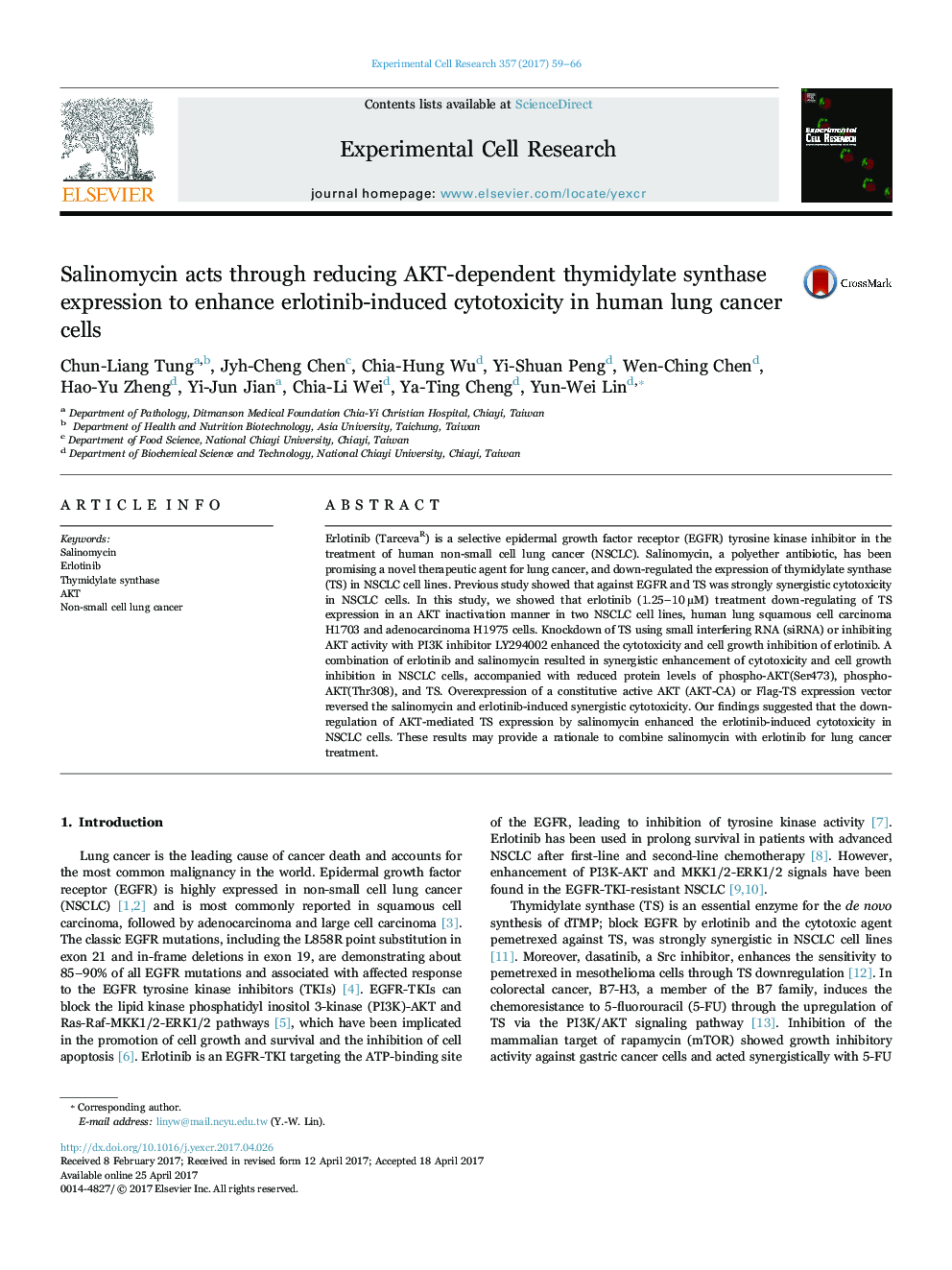| Article ID | Journal | Published Year | Pages | File Type |
|---|---|---|---|---|
| 5526885 | Experimental Cell Research | 2017 | 8 Pages |
â¢Erlotinib decreases thymidylate synthase expression in human lung cancer cells.â¢Downregulation of thymidylate synthase enhances the cytotoxicity of erlotinib.â¢A combination of erlotinib and salinomycin shows a synergistic cytotoxicity.
Erlotinib (TarcevaR) is a selective epidermal growth factor receptor (EGFR) tyrosine kinase inhibitor in the treatment of human non-small cell lung cancer (NSCLC). Salinomycin, a polyether antibiotic, has been promising a novel therapeutic agent for lung cancer, and down-regulated the expression of thymidylate synthase (TS) in NSCLC cell lines. Previous study showed that against EGFR and TS was strongly synergistic cytotoxicity in NSCLC cells. In this study, we showed that erlotinib (1.25-10 μM) treatment down-regulating of TS expression in an AKT inactivation manner in two NSCLC cell lines, human lung squamous cell carcinoma H1703 and adenocarcinoma H1975 cells. Knockdown of TS using small interfering RNA (siRNA) or inhibiting AKT activity with PI3K inhibitor LY294002 enhanced the cytotoxicity and cell growth inhibition of erlotinib. A combination of erlotinib and salinomycin resulted in synergistic enhancement of cytotoxicity and cell growth inhibition in NSCLC cells, accompanied with reduced protein levels of phospho-AKT(Ser473), phospho-AKT(Thr308), and TS. Overexpression of a constitutive active AKT (AKT-CA) or Flag-TS expression vector reversed the salinomycin and erlotinib-induced synergistic cytotoxicity. Our findings suggested that the down-regulation of AKT-mediated TS expression by salinomycin enhanced the erlotinib-induced cytotoxicity in NSCLC cells. These results may provide a rationale to combine salinomycin with erlotinib for lung cancer treatment.
Graphical abstractDownload high-res image (289KB)Download full-size image
